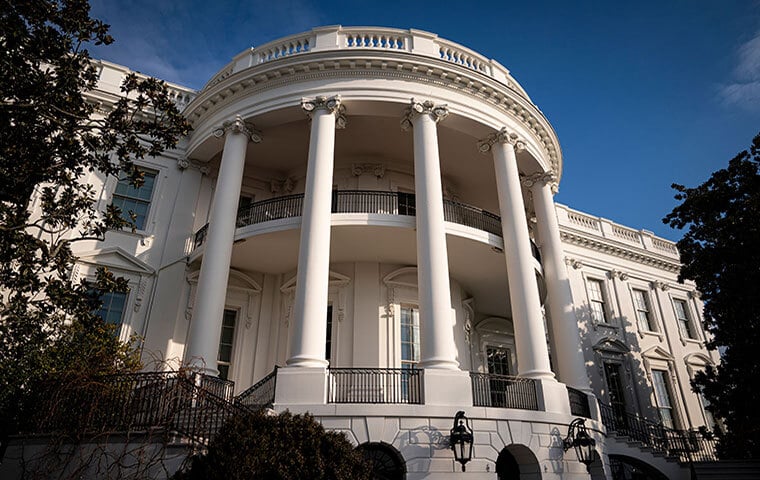 The number of positions potentially falling into those categories is unknown but likely would add greatly to the 50,000 estimate for policy-related positions. Image: Shutterstock
By: FEDweek Staff
The number of positions potentially falling into those categories is unknown but likely would add greatly to the 50,000 estimate for policy-related positions. Image: Shutterstock
By: FEDweek StaffOPM has recommended that agencies add a range of occupations to the policy-related positions previously listed as subject to “Schedule Policy/Career” status, potentially increasing the number of affected employees substantially.
Interim guidance on chcoc.gov adds to the types of positions named in President Trump’s order last week that revived, retitled and somewhat altered the short-lived Schedule F from his first term to change certain competitive service positions to the excepted service status—in the process removing many civil service protections from them.
The new order, like the prior one, tells agencies to consider for conversion positions of a “confidential,” “policy-determining,” “policy-making,” or “policy advocating” nature. It similarly gives examples such as having duties involving “substantive participation in the advocacy for or development or formulation of policy” or “viewing, circulating, or otherwise working with proposed regulations, guidance, executive orders, or other non-public policy proposals or deliberations.”
The new order further told OPM to issue by February 19 final guidance on any types of positions to be added to that list.
In its interim guidance, OPM has said that agencies “should consider” in their reviews positions whose duties include (in its words):
• functions statutorily described as important policy-making or policy-determining functions, principally: directing the work of an organizational unit; being held accountable for the success of one or more specific programs or projects; or o monitoring progress toward organizational goals and periodically evaluating and making appropriate adjustments to such goals
• authority to bind the agency to a position, policy, or course of action either without higher-level review or with only limited higher-level review;
• delegated or subdelegated authority to make decisions committed by law to the discretion of the agency head;
• substantive participation and discretionary authority in agency grant-making, such as the substantive exercise of discretion in the drafting of funding opportunity announcements, evaluation of grant applications, or recommending or selecting grant recipients;
• advocating for the policies (including future appropriations) of the agency or the administration before different governmental entities, such as by performing functions typically undertaken by an agency office of legislative affairs or intergovernmental affairs, or by presenting program resource requirements to examiners from the Office of Management and Budget in preparation of the annual President’s Budget Request;
• publicly advocating for the policies of the agency or the administration, including before the news media or on social media; or
• positions described by their position descriptions as entailing policy-making, policy-determining, or policy-advocating duties.
The number of positions potentially falling into those categories is unknown but likely would add greatly to the 50,000 estimate for policy-related positions—a number that federal employee unions have said itself likely is substantially low.
Deferred Resignation Periods about to End for Many; Overall 12% Drop
Retirement Surge Likely as Deferred Resignation Periods End
Senate Rejects Bills to Defer Shutdown; Familiar Process Lies Just Ahead
Senate Bill Would Override Trump Orders against Unions
Report Describes Impact of Shutdown on Employees, Agencies
TSP Adds Detail to Upcoming Roth Conversion Feature
See also,
How to Handle Taxes Owed on TSP Roth Conversions? Use a Ladder
The Best Ages for Federal Employees to Retire
Best States to Retire for Federal Retirees: 2025

